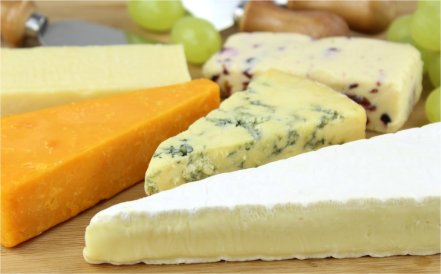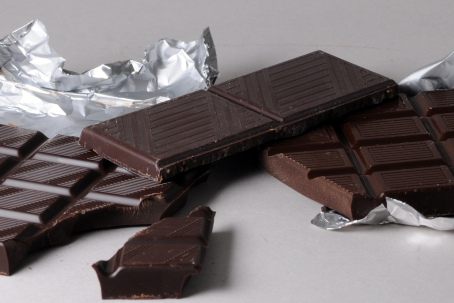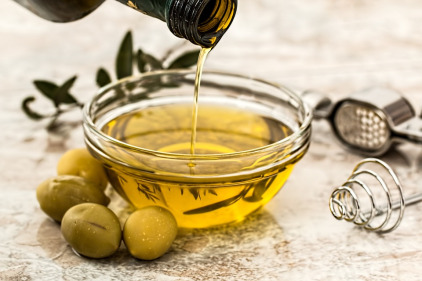
We have always been cautious about our fat consumption and this has been mostly caused by hasty inconclusive reporting of studies. But in recent years there has been a change in tune and more and more people are able to discern the different fats from what is detrimental and what is beneficial to our health.
Some of the latest studies express that fat, including saturated fat, isn't as bad as they were previously made out to be. Many foods that contain fat are now being viewed as superfoods and here are some of the common ones.
Avocados
The avocado is a fruit but unlike most fruits they do not primarily contain carbs but are packed with fats. Avocados contain about 77% fat by calories and with the main fatty acid being oleic acid - a monounsaturated fat. Comparably, it has higher fat content than most animal foods. Oleic acid is also found in olive oil and is linked to many health benefits. Moreover, avocados are a great source of fibre and have been shown in studies to lower LDL cholesterol and triglycerides, while raising HDL levels. This fruit have been shown to have major cardiovascular health benefits and contains 40% more potassium than bananas - a typical high potassium food. A recent study also showed people who eat avocados tend to weigh less and carry less belly fat.

Cheese
A whole cup of milk is used to produce a thick slice of cheese. This means that cheese is highly nutritious. Aside from a wealth of nutrients, cheese is a great source of calcium, vitamin B12, phosphorus and selenium, and is very rich in protein. It is even known to fight tooth decay. One thick slice of cheese contains about 6.7 grams of protein, or equivalent to a glass of milk. Cheese and high-fat dairy products, contains powerful fatty acids linked to all sorts of benefits, including reduced risk of type 2 diabetes.
Full-Fat Yogurt
Insist on authentic full-fat yogurt which is profoundly healthy for you. Having the same important nutrients as other high-fat dairy products, yogurt provides the extra with healthy probiotics. Studies show that yogurt helps in improved digestive health and relief from constipation. Moreover, it may help fight heart disease and obesity. Do take note that a good number of yogurts being retailed are low in fat but instead loaded with added sugar and other enhancers. Go for only authentic yogurt if you desire the health benefits.

Whole Eggs
Although high in fat and cholesterol, whole eggs are very nutritious and among the most nutrient-dense food. Yolks are high in cholesterol and fat and one egg contains some 200 mg of cholesterol or 70% of the recommended daily intake. 62% of the calories in whole eggs come from fat. New studies reveal that for most people, egg cholesterol doesn’t affect cholesterol in the blood. Brimming with vitamins and minerals, whole eggs contain quantities of almost every single nutrient our bodies need. A brain nutrient called choline where about 90% of people don't get enough of, along with powerful antioxidants are found in whole eggs. Eggs are friendly food for weight-loss as protein is the most important nutrient for weight loss. For instance, people who replace grain-based breakfasts with eggs consume fewer calories and resulting in losing weight. Go for omega-3 enriched or pastured eggs.
Fatty Fish
Fatty fish is one of the few animal fat products that are inarguably healthy. Typical fatty fish are salmon, trout, mackerel, sardines and herring. They are rich in heart-healthy omega-3 fatty acids, high quality proteins and along with an amalgamation of important nutrients. It’s therefore not surprising that people who eat fish tend to be healthier and studies have affirmatively confirmed this. This means lower risks of heart disease, depression, dementia and many other common ailments. Alternatively, taking fish oil supplements can also provide the benefits. Cod fish oil is a good choice which contains all the omega-3 plus vitamin D.

Dark Chocolate
Dark chocolate is high in fat, packed with nutrients and antioxidants and is effectively beneficial at improving cardiovascular health. Fat content stands at around 65% of calories and contains 11% fibre with over 50% of the RDA for iron, magnesium, copper and manganese. It has one of the highest scores in tests for antioxidant content and outranking even blueberries. These antioxidants can lower blood pressure and help prevent LDL cholesterol in the blood from oxidization. Studies show that those consuming dark chocolate 5 or more times a week are less than half as prone to die from heart disease, compared to people who don't. Besides, studies have shown that dark chocolate can improve brain function and protect skin damage from exposure to the sun. Go for good quality dark chocolate which contains at least 70% cocoa.
Nuts
So long as you have no allergy to nuts, they are very healthy and high in fats and fibre plus they are a good source of plant-based protein. Most people lack magnesium which is easily derived from nuts while they are also high in vitamin E. Studies reveal that those who eat nuts tend to be healthier and with a lower risk of various diseases such as obesity, heart disease and type 2 diabetes. Choice nuts include almonds, walnuts, macadamia, hazelnuts, cashews and many others and of which peanuts are at the bottom of the list.
Chia Seeds
An ounce or 28 grams of chia seeds contains 9 grams of fat. With almost all the carbs in chia seeds being fibre, most of these calories in them have come from fat. In terms of calories, chia seeds are about 80% fat and which makes them an outstanding high-fat plant food. Most of the fats in chia seeds comprise of ALA – a heart-healthy omega-3 fatty acid. Other health benefits include the lowering of blood pressure and anti-inflammatory properties. Additionally, chia seeds are packed with fibre, omega-3s, and a host of other vitamins, minerals and nutrients.

Extra Virgin Olive Oil
Extra virgin olive oil has been shown to have various health benefits and contains vitamins E and K, plus enriched by powerful antioxidants. Some of these antioxidants possess anti-inflammation properties and help to prevent the LDL particles in the blood from getting oxidized. It is shown to lower blood pressure, improve cholesterol markers and possessing numerous benefits against heart disease risks. Extra virgin olive oil is the choice of many and constitutes an essential component in Mediterranean diets.
Coconuts, Coconut Oil
Coconuts are very common in the tropics and are an essential ingredient in many Asian cuisines. They are the richest source of saturated fat with approximately 90% of the fatty acids, saturated. Contrary to previous beliefs, studies have shown that populations that consume large amounts of coconut do not have high levels of heart disease. Incidentally, they are found to be in excellent health. Coconut fats consist largely of medium-chain fatty acids which metabolize differently and going straight to the liver to be turned into ketone bodies. Studies also show that medium-chain fats suppress appetite or induce satiety thus helping people to consume lesser calories; and they can boost metabolism by some 120 calories a day. These types of fats can benefit Alzheimer's patients and those wishing to lose belly fat.























